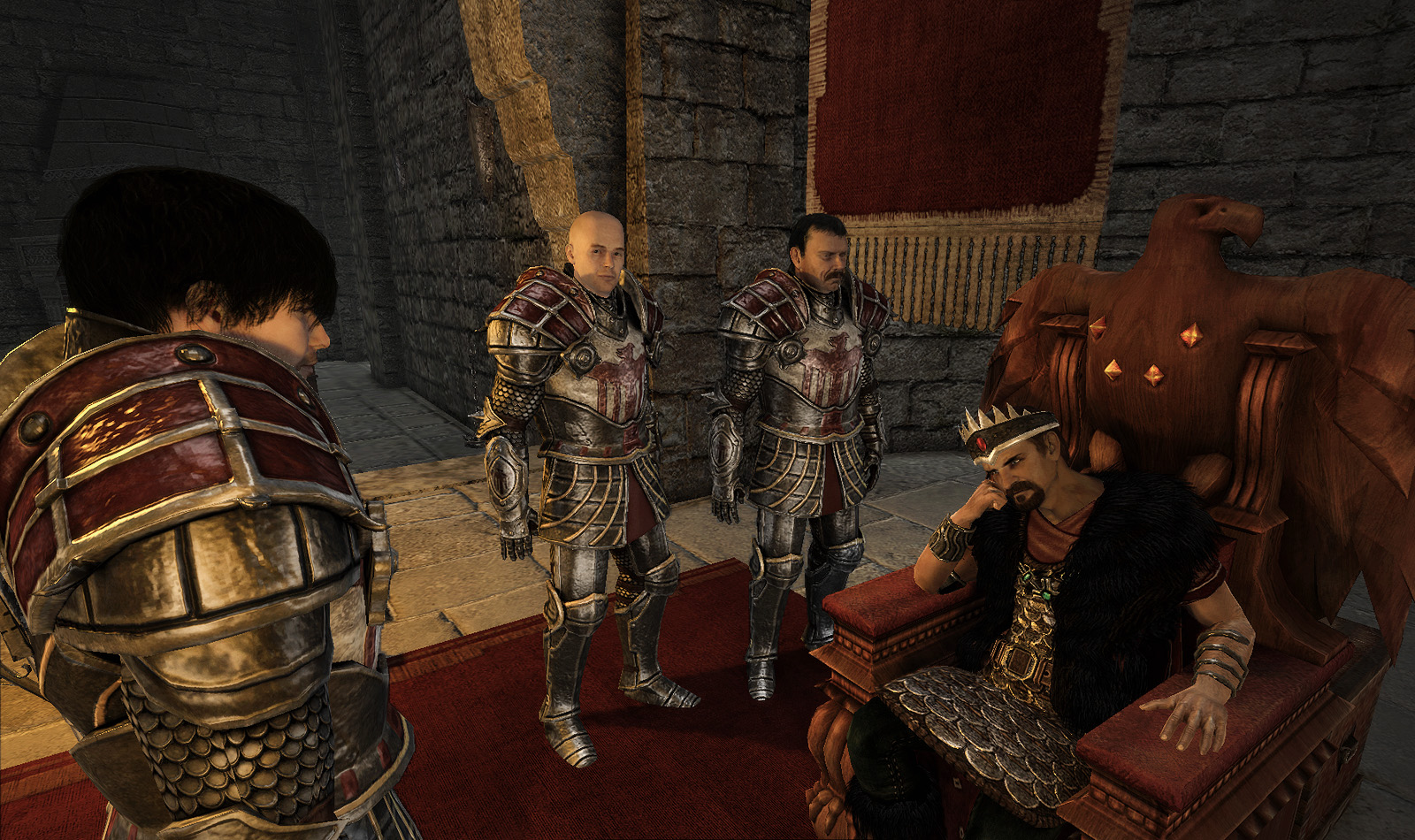

Your mix of spells is fairly limited, too, as you’ll only be wielding magic of the fire, ice, and lightning persuasions, bolstered by limited-use scrolls and runes. Even later, when you’ve grown stronger, it’s barely above adequate. There’s just no feeling of power or control, and it makes combat a genuine slog for most of the early part of the game. Your arrows lack any sense of power, and the spells – particularly at lower levels – fizz and pop like damp fireworks. Archery is assigned to R2, while magic is mapped to R1, but both feel loose and spongy. Get knocked down (and you will, a lot) and Joe Bloggs takes an age to get back on his feet, during which time the apparently confused enemy AI stands still and lets him get his breath back. The combat takes place in real time, and utilises the usual mix of hacking, slashing, blocking, and rolling, but it’s so ponderous and lacking in impact that you never really feel you’re doing any damage to anything, and even a boss fight becomes instantly boring. Done right, that sort of thing can work wonderfully for a fantasy RPG, but sadly Arcania’s comfort zone is wallpapered entirely in beige.

So far, so generic, right? And unfortunately, Arcania never steps outside of its comfort zone. As is standard, killing monsters and completing quests (of which there are scores and scores) earns you the XP in the first place. The comparatively shallow skill tree contains the usual sliders for melee damage, increased health and a steadier bow-arm, and each can be filled up by assigning skill points earned when you gain a level. The main game itself imposes no real class restrictions and allows you to build your John Doe however you choose.

#Arcania gothic 4 ps3 boss full
You can either import your character from the main game or create a new one who’ll begin at Level 28, with 20 skill points available and a full set of equipment in-line with whichever “class” you select. It’s basically more of the same as you travel the land looking to re-recruit your former allies, but you’ll be doing it at a higher level. The Complete Tale comes with the original Arcania: Gothic IV and standalone expansion The Fall of Setarrif, which sees travel to the land of Setarrif where the evil that once clouded King Rhobar’s mind now possesses another ruler. It’s not unfair to say that, even if you’ve never played a Gothic game before, you’ve probably played through this plotline at least half a dozen times. The culprit is King Rhobar III himself, possessed by an ancient demon who is using his royal influence to dominate the kingdom and the world, and only the nameless one can stop him. In this particular title, the nameless protagonist is just about to propose to his girlfriend (winning her hand forms the basis of the tutorial) when the unthinkable happens, and while he’s off having a witch awaken his dormant magical powers, the King’s Paladins descend on his quaint little hunting village (where they also fish, I expect) and kill everyone, leaving him no choice but to set off to the mainland with his friend and mentor, Diego, to exact his revenge. It’s a horribly overused, hackneyed convention that has existed as long as fantasy has and will continue to thrive for as long as there are games like Arcania to perpetuate it. Then of course, regardless of their lack of training or direction, they immediately vow revenge, kill ten rats or wolves and find a magical sword. They’re always busy somewhere doing something they can feel guilty about later when they return to the village (or come to, in some cases) to find everyone dead. It almost seems like some kind of defence mechanism that one of those fishing villages will usually contain at least one young person with an extraordinary heritage or untapped potential – and they’re never the one to take the first arrow, or the one who steps out of the straw tent just in time to catch a morningstar in the mouth. It seems you can’t turn your back for five minutes without an ancient terror coming back from the grave, a gateway to Hell opening up somewhere, a tyrannical ruler rising to power or, at the very least, some kind of savage race with bad teeth and worse hair pillaging innocent fishing villages. You have to wonder sometimes how fantasy civilisations ever stand a chance of prospering.


 0 kommentar(er)
0 kommentar(er)
